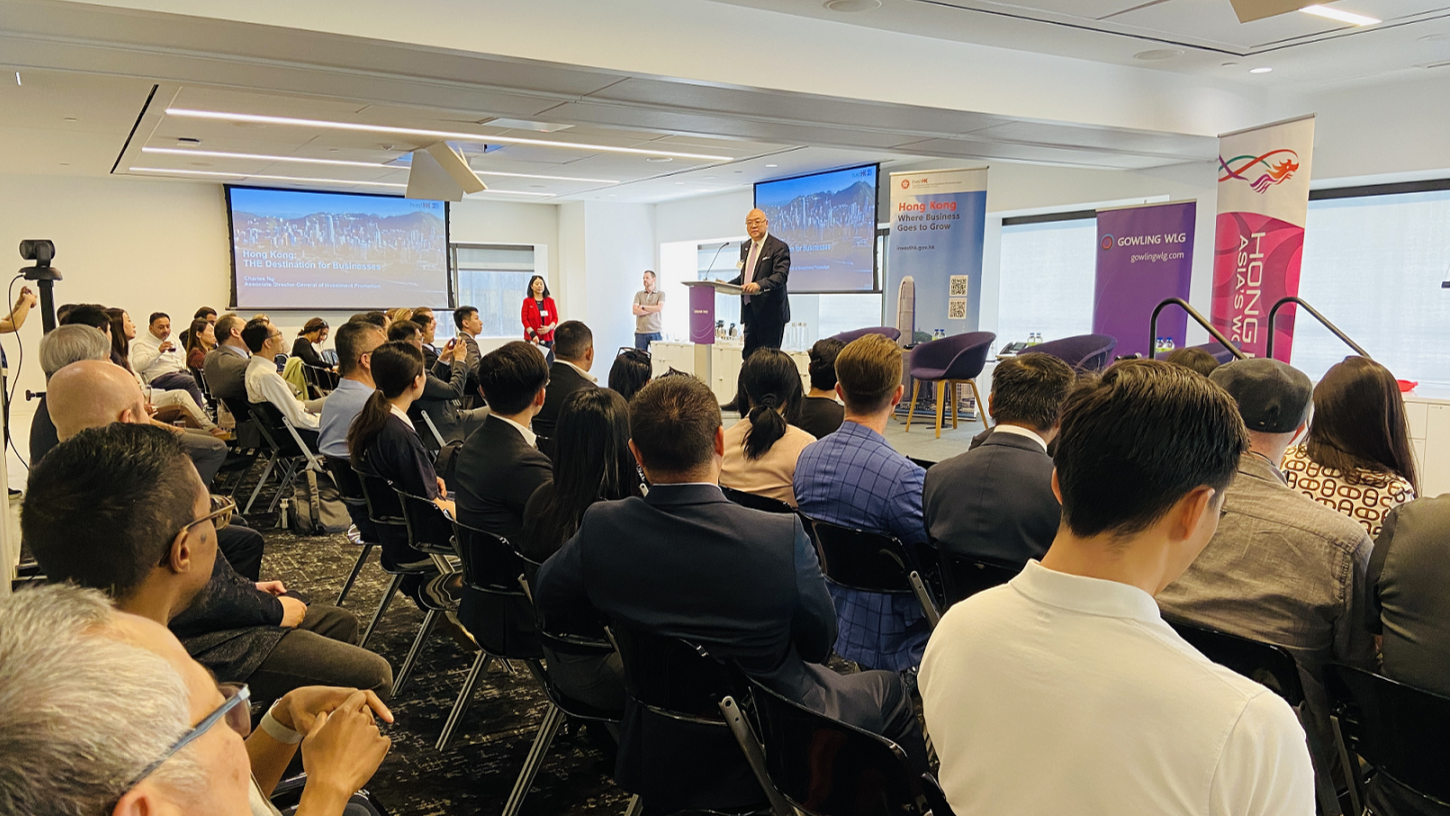Join our freelancer community today!
Create your profile in just 2 minutes and start attracting new clients.
According to the Freelancer Study 2025, 81% of freelancers surveyed hold a university degree, and 79% are senior experts with more than 10 years of experience. This high level of qualification underscores the competitive nature of today’s freelance marketplace. In this environment, Upwork’s 2025 Future Work Index, 87% of skilled knowledge freelancers prefer work that helps them improve their current skills or learn new ones, versus work that only allows them to use the skills they already have. This statistic highlights a crucial insight: successful freelancers aren’t just working—they’re strategically developing their capabilities with every project they take on.
But how do you approach skill development strategically rather than haphazardly? How do you ensure the time and resources you invest in learning actually translate to higher earnings and better opportunities? And most importantly, how do you balance immediate client needs with long-term career growth?
This comprehensive guide will walk you through creating and implementing a strategic skill development plan that maximizes your return on investment as a freelancer in 2025 and beyond.
Many freelancers fall into the —taking courses that sound interesting or learning technologies that are trending for how these new skills will advance their careers. This approach often leads to a scattered skill set that doesn’t cohesively position you in the market.
Strategic skill development, by contrast, is a deliberate, that:
The three are:
Before investing in any new skill, . Tools like LinkedIn’s Workforce Report, or industry-specific job boards can help you and have growing demand.
For example, while general web development remains in demand, specializing in specific areas like e-commerce optimization, accessibility compliance, or performance optimization can command than generalist skills.
Rather than trying to master everything, strategic skill development and natural aptitudes. This approach creates a more cohesive skill profile and allows you to reach expert status faster.
Hugo, a self-taught developer who transitioned from being a watchman to a full-time web developer, shares:
“I started with HTML5 and CSS3, followed by JavaScript. With those three tools, I was able to put together a lot of things, so that’s what I would personally recommend to someone who wants to get started.”
His approach worked because he , mastering fundamentals before moving to more complex technologies.
Before mapping your skill development journey, you need a clear . This self-assessment process involves taking inventory of your current capabilities, identifying gaps, and establishing baseline metrics.
Conducting a skills inventory
Create a comprehensive list of your technical and soft skills, rating each on a scale of 1 (lowest) – 5 (highest) for:
Take a look at this example for a web developer:
| Skill | Proficiency | Market demand | Personal enjoyment | Revenue generation | Total score |
|---|---|---|---|---|---|
| HTML/CSS | 5 | 4 | 3 | 3 | 15 |
| JavaScript | 4 | 5 | 4 | 4 | 17 |
| React | 4 | 5 | 5 | 5 | 19 |
| Node.js | 3 | 4 | 4 | 4 | 15 |
| TypeScript | 3 | 5 | 3 | 4 | 15 |
| PHP | 4 | 3 | 2 | 3 | 12 |
| WordPress | 5 | 3 | 2 | 4 | 14 |
| UI/UX Design | 2 | 4 | 4 | 3 | 13 |
| SEO | 2 | 4 | 3 | 4 | 13 |
| GraphQL | 2 | 4 | 4 | 3 | 13 |
| AWS/Cloud | 2 | 5 | 3 | 4 | 14 |
| Skill | Proficiency | Market demand | Personal enjoyment | Revenue generation | Total score |
|---|---|---|---|---|---|
| Client communication | 4 | 5 | 3 | 5 | 17 |
| Project management | 3 | 4 | 3 | 4 | 14 |
| Time estimation | 3 | 4 | 2 | 5 | 14 |
| Problem solving | 5 | 4 | 5 | 4 | 18 |
| Technical writing | 4 | 3 | 4 | 2 | 13 |
| Mentoring | 3 | 3 | 5 | 2 | 13 |
Insights from this inventory:
1. : Based on this inventory, specializing in React development with a focus on cloud integration would leverage both your strengths and market demand.
2. : React (19), Problem solving (18), and JavaScript (17) represent your strongest combination of skill, market value, and personal enjoyment.
3. : AWS/Cloud services and UI/UX Design show strong market demand but lower proficiency, suggesting potential high-ROI skill development targets.
4. : While you’re highly proficient in WordPress and PHP, you enjoy them less and they have lower market demand than newer technologies.
5. : Client communication scores highly across the board but may not be prominently featured in your marketing materials.
This exercise often reveals surprising insights about which skills are actually driving your business versus which ones you might be overvaluing.
Creating your personal SWOT analysis
A SWOT analysis (Strengths, Weaknesses, Opportunities, Threats) provides a structured way to evaluate your position in the market:
: What do you do better than most? What unique skills or experiences do you have?
: Where do you lack expertise? What feedback have clients given about areas for improvement?
: What market trends could you capitalize on? What emerging needs align with your interests?
: What changes in your industry might make your current skills obsolete? Who are your competitors and what are they offering?
This analysis helps identify both .
Every learning opportunity represents an investment of time, money, and opportunity cost. Strategic freelancers .
According to the Freelancer Study 2025, freelancers spend an average of 5 hours per week on non-billable tasks, including skill development and education. This represents a significant investment of time that must generate returns.
Consider this example:
: A specialized course costs €500 and requires 40 hours to complete
: €75/hour
(billable hours lost): 40 hours × €75 = €3,000
: €3,500
: €90/hour
: €3,500 ÷ €15 additional per hour = 233 billable hours to recoup your investment
This calculation helps you and set realistic expectations for when that investment will pay off.

With a clear understanding of your current position and market demands, you can now create a that balances immediate needs with long-term growth.
Start by articulating where you want to be in 1, 3, and 5 years. Consider:
Our report 2025 reveals that , suggesting that clear professional vision and alignment with personal values are key factors in freelancer satisfaction.
This vision serves as the north star for all development decisions.
Following the professional development planning approach recommended by freelance experts, organize your goals into three categories:
(1-3 months): Skills that address immediate client needs or fix critical gaps
(3-12 months): Capabilities that expand your service offerings or improve efficiency
(1-3 years): Transformative skills that could open entirely new markets or service categories
For each goal, define specific, rather than vague aspirations. For example, instead of “learn JavaScript better,” specify “build three interactive web applications using advanced JavaScript frameworks.”
Determine you can realistically devote to skill development. Many successful freelancers follow the , dedicating 20% of their working hours to learning and development.
As Hugo, the self-taught developer, recommends:
“Start with 20 minutes a day, perhaps during lunch or when you wake up, and increase the amount. Each week adds 10 minutes to the total daily time, and soon you will find yourself advancing rapidly. I think it is possible to reach 3 hours of study per day after 5 or 6 months.”
Research shows that having dramatically increases the likelihood of achieving learning goals. Consider:
Plan to , asking:
Which skills have improved the most?
Which learning methods have been most effective?
How have new skills impacted your business metrics?
What adjustments are needed to your development plan?
These reviews prevent you from continuing with ineffective approaches and help you pivot as market needs change.
Not all learning approaches deliver equal value. Strategic freelancers select methods based on their learning style, budget constraints, and the specific skills they’re developing.
According to freelancer surveys, 63% of freelancers use e-learning courses as their primary development method. Popular platforms include:
When evaluating online courses for skill development, savvy freelancers look beyond the basic curriculum to assess several critical factors that determine true educational value. First, examine whether the course includes substantial project-based components that will result in . These practical applications not only reinforce learning but also provide to potential clients.
Second, consider the surrounding the course: strong peer networks and discussion forums can provide invaluable support, feedback, and networking opportunities that extend well beyond the course duration.
The also significantly impact your learning experience: look for educators with real-world expertise who can translate complex concepts into accessible lessons with a teaching style that resonates with your learning preferences. Additionally, in your field rather than just beginners; experienced practitioners can better evaluate whether a course delivers advanced, market-relevant knowledge or merely covers basics.
Finally, research the recognition and or credentials offered upon completion; in some industries, specific certifications carry significant weight with clients and can directly impact your marketability, while in others, the portfolio pieces you develop may prove far more valuable than the credential itself.
While often overlooked, can dramatically accelerate skill development by providing:
– based on your specific challenges
– not found in courses
– and
– connections and referrals
Many successful freelancers attribute their rapid growth to , even if it required financial investment.
Self-assigned practice projects represent one of the most powerful approaches to mastering new skills in the freelance world. Unlike passive learning methods, these transform theoretical knowledge into tangible expertise.
: Each project you complete becomes a compelling portfolio piece that demonstrates your capabilities to potential clients—showing not just what you know, but what you can actually create.
: Unlike tutorials with predetermined solutions, self-assigned projects force you to confront authentic challenges, teaching you to troubleshoot, research, and implement solutions independently.
: Successfully completing challenging projects builds the confidence necessary to pitch your services to clients, knowing you’ve already overcome similar obstacles on your own terms.
#: Many freelancers find that their practice projects evolve into monetizable assets—whether through direct sales, attracting clients impressed by your initiative, or developing products that solve common problems in your industry.
Remember: The most effective practice projects push you slightly beyond your current comfort zone while remaining achievable with focused effort. Start with manageable scope and gradually increase complexity as your skills develop.
Learning within professional communities transforms the often solitary journey of skill development into a rich, collaborative experience. By in your field, you gain access to a that far exceeds what you could discover on your own.
When you actively participate in professional communities—whether through online forums, local meetups, industry Slack channels, or specialized social media groups—you immerse yourself in a diverse ecosystem of ideas and approaches. These varied perspectives challenge your assumptions and expose you to alternative solutions you might never have considered, broadening your technical and creative horizons.
The within these communities are particularly valuable. Sharing your work and receiving constructive criticism from experienced practitioners helps identify blind spots in your understanding and accelerates your growth far more effectively than working in isolation. Similarly, the opportunity to deepens your own comprehension and analytical skills.
Perhaps most valuable is the community’s function as an . Trends, tools, and techniques often emerge in professional communities months or even years before they become mainstream, giving community members a significant competitive advantage in adapting to market changes. This insider knowledge allows you to strategically focus your learning efforts on truly emerging opportunities rather than fading technologies.
Finally, these communities provide crucial during the inevitable challenges of learning complex skills. When you encounter frustrating obstacles or moments of doubt, having access to others who have overcome similar hurdles provides both practical guidance and the motivation to persist through difficult learning phases.
One of the biggest challenges freelancers face is . The Freelancer Study 2025 shows that , with of respondents citing as a.

Effective strategies include:
• : Dedicate specific hours each week solely to learning
• : Choose client projects that require stretching into new skill areas
•: Use small time pockets (15-30 minutes) for incremental progress
• : Plan intensive learning periods during your industry’s slow seasons
• : Alternate between periods of heavy client work and focused learning
Different freelance fields require tailored approaches to skill development. Here’s how to think strategically about upskilling in major freelance categories:
For developers and technical freelancers, the rapid pace of change requires continuous learning. Focus on:
As noted in our research, “JavaScript and CSS programming, social media marketing, and building Shopify stores” are currently in high demand, but the landscape changes quickly.
For designers, writers, and other creative professionals:
For marketers, content creators, and communication specialists:
For business consultants, project managers, and strategists:
Strategic skill development isn’t complete without measuring its impact on your freelance business. Establish .
When , sophisticated freelancers look beyond simple course completion certificates to . Effective measurement requires a multi-dimensional approach that captures both quantitative and qualitative improvements.
Monitor specific rate increases that directly result from your newly acquired capabilities. Document before-and-after pricing for comparable projects, noting how enhanced skills justify premium rates with existing and new clients.
Observe shifts in your client roster following skill acquisition. Are you attracting more established businesses? Are projects becoming more strategic rather than purely executional? These qualitative improvements often signal greater long-term value than immediate rate increases.
Measure time savings on routine tasks that previously consumed significant hours. Calculate the value of this reclaimed time, whether it’s redirected toward billable work or business development activities that generate additional revenue.
Quantify the revenue generated from entirely new service offerings made possible by your expanded skill set. Track not just the direct income from these services but also their role in securing larger, more comprehensive client engagements.
Compare conversion rates on proposals before and after highlighting your new capabilities. A higher win rate on competitive bids provides concrete evidence of your skill investment’s market value, even if your rates remain temporarily unchanged.
By establishing these metrics before beginning your skill development journey, you create a framework for objectively evaluating ROI and making increasingly strategic learning investments throughout your freelance career.

The Freelancer Study 2025 reveals that 41% of freelancers plan to raise their hourly rates within the next year. Their top reasons? 51% point to gaining more experience, while 33% cite new qualifications. These figures highlight the .
However, learning something new doesn’t automatically lead to higher income. Successful freelancers take a strategic approach by:
In short, it’s not just about gaining skills—it’s about .
How you set matters tremendously. Instead of just listing new tools or technical skills, focus on strategies that build trust and show value:
• Focus on , not just technical details. Explain how your new skills will help them achieve better results.
I recently completed advanced training in UX design, which goes beyond aesthetics to focus on how users interact with your product. With this skill set, I can help you increase user engagement and reduce drop-off rates—leading to higher conversions and a better overall customer experience. Instead of just creating interfaces, I now design with measurable business outcomes in mind.
• Share that demonstrates your expertise. This can be in the form of short tips, blog posts, or case studies that subtly showcase your new capabilities.
• Offer your existing clients to try out your new services at a discounted rate or as a bonus. This builds goodwill and gives you a chance to refine your process.
To demonstrate the value of my new [service/skill], I’d like to offer you an exclusive pilot project at a special discounted rate. This gives you a risk-free chance to experience the benefits firsthand while allowing me to fine-tune my approach based on your feedback. I’m confident this will bring added value to your business and strengthen our collaboration.
• Use to highlight quality improvements. Concrete comparisons speak louder than abstract claims and help clients understand what’s possible with your upgraded skills.
The final component of strategic skill development is learning to and aligning your path accordingly. This requires a proactive approach that goes beyond reacting to immediate trends.
Start by sharpening your ability to . Follow industry analysts, monitor job boards for emerging requirements, and stay engaged with forward-thinking communities. Tracking how new technologies are being adopted can offer valuable clues about what’s coming next.
Some of the most promising skill areas for the 2025–2030 horizon include:

These fields are not only growing fast but also intersect with long-term societal and technological shifts.
Beyond any single skill, adaptability itself is your greatest asset. Building it means learning to pick up new tools quickly, maintaining a solid base of transferable skills, and cultivating a mindset that sees change as an opportunity. Financial stability also plays a role—having a buffer gives you the flexibility to pivot when needed.
To support all of this, develop a system for continuous learning. Set aside regular time to study, curate high-quality sources, and organize what you learn in a way that makes it actionable. Teaching others is one of the best ways to reinforce knowledge, and reviewing your progress quarterly ensures you’re staying aligned with your goals.
In an ever-changing landscape, those who stay curious and adaptable will lead the way.
Strategic skill development is no longer optional for freelancers who want to thrive in an increasingly competitive global marketplace. By taking a deliberate, planned approach to your professional growth, you can maximize the return on every hour and money invested in learning.
Start by assessing your current position, researching market demands, and creating a structured development plan with clear goals and timelines. Choose learning methods that match your style and circumstances, and consistently measure the impact of new skills on your business metrics.
Remember that the most successful freelancers aren’t necessarily those with the most skills—they’re the ones who have strategically developed the right skills that align with market needs and their personal strengths.
As you embark on your strategic skill development journey, keep this quote from a successful self-taught developer in mind:
“The important thing is to learn, not how you do it.”
| Development | GitHub Learning Lab, freeCodeCamp, Codecademy |
| Design | Dribbble Workshops, Skillshare, Domestika |
| Marketing | HubSpot Academy, Google Digital Garage, ContentMarketingInstitute |
| Business | Harvard Business School Online, LinkedIn Learning, Udemy Business |
- Local coworking space events and workshops
- Peer mentorship exchanges
• “Deep Work: Rules for Focused Success in a Distracted World” by Cal Newport
• “Range: Why Generalists Triumph in a Specialized World” by David Epstein
• “Ultralearning” by Scott Young













